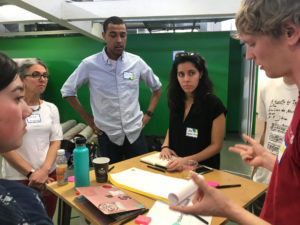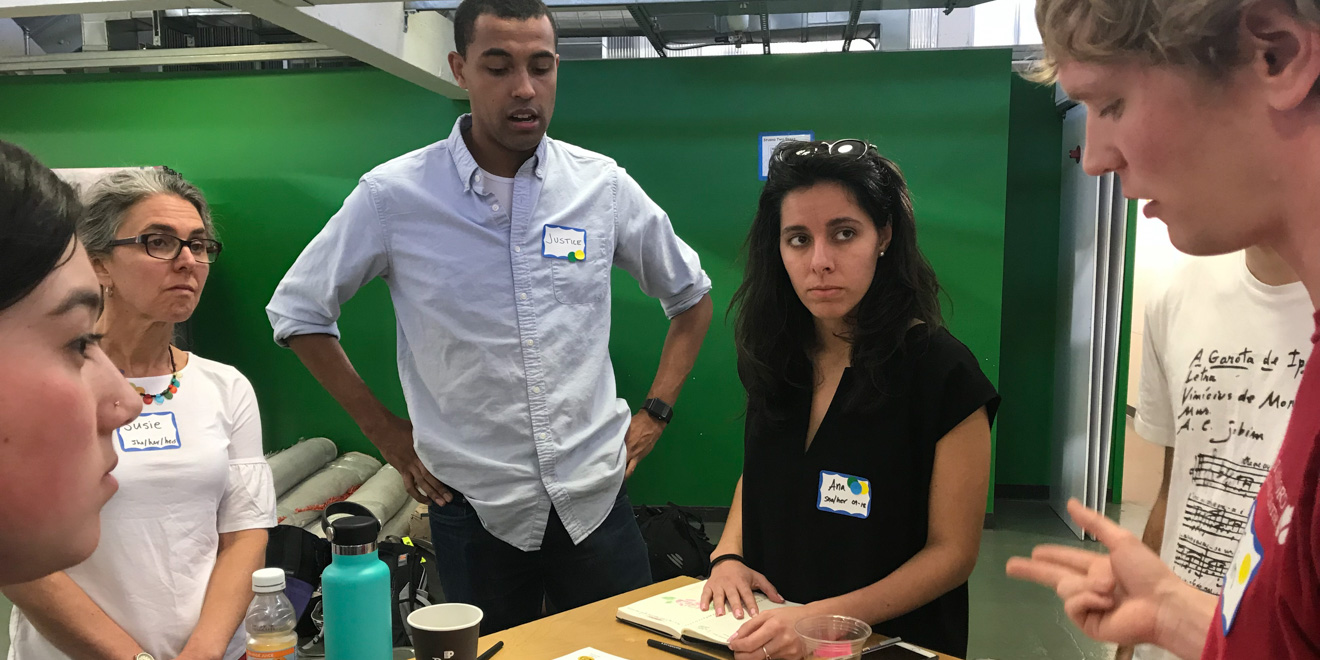On Saturday, the “Making Change Happen” workshop — the second and final installation in the “Institutional Change at Stanford” series — united over two dozen undergraduate and graduate students with administrators in discussion about the University’s handling of ongoing issues including mental health and sexual assault.

Provost Persis Drell opened the workshop, hosted by the Associated Students of Stanford University (ASSU) and Lily Zheng ’17, with a speech on the importance of institutional change, inviting students and faculty to resist complacency and collaborate on pressing issues.
“People don’t like change [and] that’s human nature,” Drell said. “But if we as a University don’t change, we risk losing our way.”
At the start of the event, students participated in icebreaker activities and conversed with University administrators, including Vice Provost of Student Affairs Susie Brubaker-Cole and Title IX Coordinator Cathy Glaze. These activities were intended to help students avoid “objectifying administrators,” Drell said.
“We’re not a set of nameless, faceless bureaucrats anymore,” she added. “We’re Susie and Cathy and Helen and Cindy, Harry and Persis. We’re real people.”
Afterwards, students split up into small groups, chose an issue they cared about and consulted with administrators — who acted as “coaches” — to develop a set of steps toward enacting institutional change. Each student team mapped out the “stakeholders” it would have to consider and detailed a specific plan in a workbook.
Several teams chose to tackle the issue of mental health resources and awareness on campus. Justice Tention ’18, ASSU president, said his group focused on populations in which mental health is underemphasized, such as graduate students and faculty. Katie Hufker ’18 and Hamzeh Daoud ’20, both members of the Undergraduate Senate, guided their team in creating a plan to reform the training process for Residence Deans to be more sensitive to mental health crises.
Other student teams sought solutions for current issues such as long-range planning and the Campus Climate Survey.
“We were discussing how we can capitalize on this window that we have for feedback on long-range planning, how we can best organize students in order to have them actually engage with the white papers and how to have a more unified voice in response to some of the [ideas] being put forward,” said Caitlin Handron, co-chair of the Graduate Student Council Diversity and Advocacy Committee.
Handron’s team planned an event for students to comment on the long-range planning white papers during the 30-day feedback window that started on Feb. 1. Graduate student Ana Tarano ’14, a Ph.D. candidate in aeronautics and astronautics engineering, also suggested ways of making the white papers more accessible and appealing to students. She pitched the idea of handing out graphic flyers that summarize the papers’ contents so that people can be informed without having to read the full report.
Both Brubaker-Cole and Vice Provost for Undergraduate Education Harry Elam helped coach Handron’s team.
“Personally, I think there is nothing more impactful and influential than to [engage with administrators] face-to-face,” Brubaker-Cole advised the team. “So if [I were] in your shoes, I would request an audience with [those in charge] and put together a really thoughtful session to share your feedback.”
Brubaker-Cole also helped train the student team tackling the recent dispute surrounding the Campus Climate Survey.
Executive Assistant & Communication Coordinator for the Office of Institutional Equity and Access and graduate student Sarah Kramer, Matthew Baiza ’18 and Jacqueline Lin ’18 debated the merits of either administering the Campus Climate Survey this spring or waiting until 2019 to conduct a survey created by the Association of American Universities (AAU), which over 90 percent of undergraduate students voted in favor of last spring.
Kramer’s team came up with two advocacy plans to bring to the attention of student leadership and administration on campus. The first plan would support the University’s promise to conduct its Climate Campus Survey every three years. The second plan is to continue in pursuit of the AAU survey given that students have overwhelmingly voiced support for it.
“I actually went through the Title IX process myself,” said Lin, who has been championing the AAU survey. “The Campus Climate Survey is a huge issue because [there are] a lot of assaults that aren’t counted in the survey, including mine. So making this new climate survey actually accurately measures all the violence that’s happening on campus and captures the reality of what survivors go through.”
At the end of the four-hour workshop, many students agreed that the program marked just the beginning of a long process towards institutional change.
“This issue didn’t end because the workshop ended,” Kramer said. “I’m overworked and [am taking] way too many [classes], but at the end of the day, twenty years from now [when I] look back at my Stanford experience, what’s going to matter? It’s this.”
Contact Melissa Santos at melissasantos ‘at’ stanford.edu.
